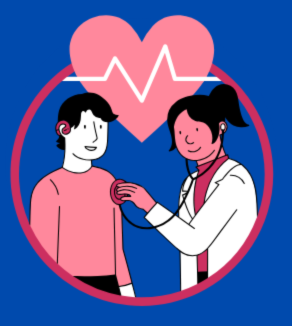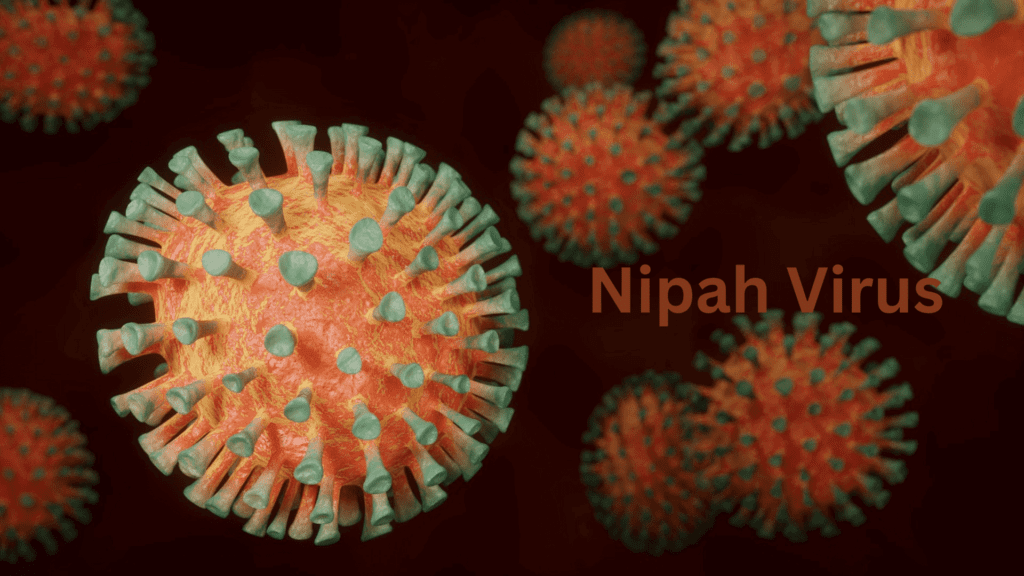What is nipah virus ?
Nipah virus (NiV) is a zoonotic virus, meaning it is transmitted from animals to humans. The virus is primarily spread through contact with infected animals (particularly bats and pigs) or through consumption of contaminated food. It can also spread from person to person.
It was first identified in 1999 during an outbreak among pig farmers in Malaysia.
How does nipah virus look like ?
Nipah virus particles are spherical or pleomorphic (variable in shape) and are part of the Henipavirus genus within the Paramyxoviridae family. It is an enveloped virus, meaning it has an outer lipid membrane. This envelope is derived from the host cell membrane as the virus buds from the infected cell.
How it get transmitted ?
Nipah virus is transmitted through several routes:
Animal to Human:
Direct Contact: Handling infected animals such as bats or pigs or their bodily fluids (saliva, urine, blood).
Food Contamination: Consuming food products, particularly raw date palm sap, that have been contaminated with the saliva or urine of infected bats.
Human to Human:
Close Contact: Direct contact with the bodily fluids (e.g., saliva, urine, blood) of an infected person.
Aerosol Transmission: In some cases, the virus can be spread through respiratory droplets when an infected person coughs or sneezes.
What causes nipah virus?
If an infected bat or pig transfers bodily fluids to another animal, that animal becomes infected. The similar thing happens when people come into contact with the animal’s body fluids. This could be urine, feces, blood, or saliva. Once infected, a person can transfer the virus to others through their bodily fluids.
Transmission also occurs when food products are contaminated with infected animals’ fluids. This comprises both fruit and uncooked date palm sap. People who often climb trees where bats roost and rest have also been afflicted with the Nipah virus.
https://www.youtube.com/watch?v=O6t0yTshMds
Symptoms of nipah virus :
Initial Symptoms may include :
- Fever
- Headache
- Muscle pain
- Vomiting
- Sore throat
The incubation period (time from exposure to onset of symptoms) ranges from 4 to 14 days but can extend up to 45 days in some cases.
Severe Symptoms:
- Acute respiratory infection symptoms may include coughing, trouble breathing, and severe respiratory distress.
- Neurological symptoms include encephalitis (brain inflammation), which is a serious concern.
- Symptoms include sleepiness, dizziness, altered awareness, and convulsions.
- In severe cases, the infection can lead to coma within 24-48 hours.
- Survivors of Nipah virus infection may develop long-term neurological problems such as persistent convulsions and behavioral abnormalities.
How long it survive in fruits ?
he exact duration that Nipah virus can survive on fruits is not definitively established, as it can depend on various factors such as the type of fruit, environmental conditions (temperature, humidity), and the presence of organic matter. However, it is known that the virus can persist for some time under favorable conditions.
Research suggests that Nipah virus can remain viable on surfaces, including fruits, for a few hours to several days, especially if the environmental conditions are moist and cool.
The risk of transmission through fruits is primarily associated with contamination by bat saliva or urine. Ensuring that fruits are properly washed and, if possible, peeled before consumption can help reduce the risk.
To minimize the risk of Nipah virus infection from fruits, it is recommended to avoid consuming fruits that may have been exposed to bats or other potential carriers of the virus, particularly in areas where Nipah virus is known to be present.
Is there a cure for nipah virus?
There is no specific treatment or vaccine for Nipah virus infection.
How to prevent nipah virus infection ?
If you live in or go to a region where nipah virus is present, you should take the precautions that follow to avoid contracting the virus:
- Wash your hands frequently.
- Avoid any contact with sick pigs or bats.
- Cleaning and disinfecting pig farms. Animals with the illness should be quarantined immediately.
- Avoid trees or bushes where bats are known to rest or sleep.
- Avoid eating or drinking anything that might be contaminated, such as palm sap or fruit. If you gather palm sap, make sure to boil it first. Before eating any fruit, wash it thoroughly and peel it.
- Throw away any fruit with bat bites or fruit that’s touched the ground.
- Avoid contact with the saliva, blood or other bodily fluids of a person with the virus.
Supportive Care:
- Patients often require hospitalization for intensive monitoring and supportive care.
- Mechanical ventilation may be necessary for patients with severe respiratory distress.
- Intravenous fluids are administered to maintain hydration and electrolyte balance. Avoid dehydration
- Medications may be given to reduce fever, control seizures, and alleviate pain.

